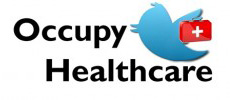After a recent less-than-satisfactory appointment with my cardiologist, I was troubled by how common poor relationships between doctors and patients are. When did doctor and patient relationships, so necessary to the successful treatment of long-term illnesses, become adversarial?
After rearranging an appointment twice to accommodate my cardiologist’s schedule, I was disappointed that he had not allocated adequate time to discuss my medical issues. He did listen as I detailed my symptoms, but I am not sure he heard me. My complaints were brushed aside as if not worthy of attention, and I was rushed out the door without solutions. It was clear my cardiologist was in a hurry to see his next patient. I departed feeling as though I was an imposition rather than a partner in my medical treatment.
I recognize that there are deficiencies on both ends of the stethoscope. It is not the medical profession that bears the full blame for the disruption between us. I share some responsibility for the breakdown. I should have voiced my concern and confusion immediately before leaving the office. That is a shortcoming I must work on improving.
In years’ past, patients did not actively participate in their treatment. However, in today’s world, “respect, but question” is a beneficial and often expected model of care.
No one would accept a medical professional ignoring critical warning signs without a cursory inspection, nor arbitrarily dismissing symptoms. Imagine my confusion when the very symptoms my doctor ignored were those on his watch list as danger signals? Imagine that.
I am your patient, and the very reason for your profession’s existence is care and treatment of me and other patients. Without us, what would the point be?
Some doctors rightly complain that patients use the Internet as a diagnostic and treatment tool. However, has it ever occurred to these critics that is so because patients can’t get answers? Many doctors just don’t have the time and won’t take time for patients. I would much rather prefer to rely on your training and expertise than the vagaries of online resources.
Most doctors are exemplary caregivers, and yet, very few physicians comprehensively use the skills they have spent so much time to perfect. Does anyone really believe a 5-minute office visit for a patient with significant health issues adequately achieves a proper diagnosis and treatment? Assembly-line practices only work when the individual parts and procedures are identical. Unfortunately, no two humans are alike.
Patients understand that there is a shortage of medical professionals, but shortchanging us all to compensate doesn’t solve the problem. Quality of service is what we are looking for, not necessarily time. Listen, answer, and explain. Those three words sum up what we would all like to receive. When a patient identifies a symptom, take the time to explain why, in spite of it being a red flag, you feel that it is nothing to worry about.
The study and practice of medicine is your passion, not mine. My interests lie elsewhere, so I would prefer to relinquish my care to your expertise rather than chase all the anecdotal leads on the Internet. Let’s work together as a team to resolve my medical issues and develop a collaborative, long-term relationship. Let’s open a dialog to understand how we both can best achieve this goal and get back on track.
I’m glad I got that off my chest. As a heart patient, I’ve already got far too much to deal with in that region.
Ralph Warren lives in Tucson AZ with his wife and herd of assorted animals. Since a significant cardiac episode forced him into retirement in 2007, he divides his time between volunteer work with cardiac patients, and creative endeavors.
